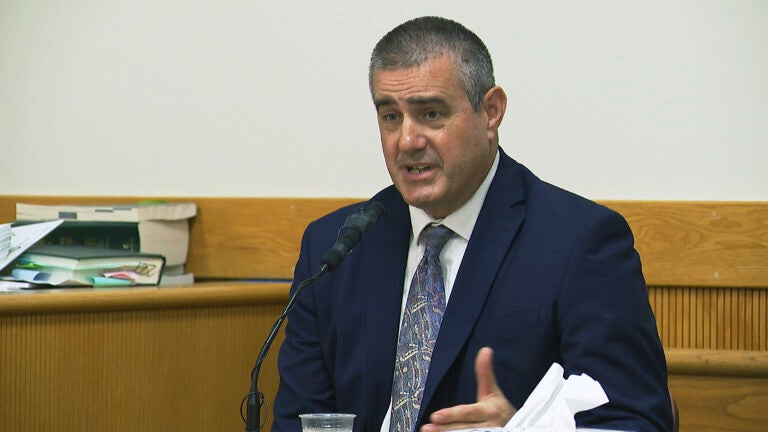
PROVIDENCE, R.I. — In a case that has gripped the Rhode Island community, a jury has found former high school basketball coach Aaron Thomas not guilty of second-degree child molestation and second-degree sexual assault. The verdict, delivered on Monday, instead found Thomas guilty of misdemeanor battery, a lesser charge that carries a significantly reduced penalty.
The decision comes after a lengthy trial in which Thomas was accused of conducting “naked fat tests” on hundreds of male student-athletes over several decades. These tests involved asking students if they were “shy or not shy” before instructing them to undress for body fat assessments. The defense argued that while the tests were inappropriate, they did not constitute a crime.
Defense and Prosecution Perspectives
Throughout the trial, Thomas’ defense team maintained that the tests, though misguided, were not sexually motivated. Defense attorney John MacDonald expressed satisfaction with the verdict, stating, “We are very satisfied that the jury saw the case as we saw it, no sexual intent whatsoever.”
Conversely, prosecutors argued that Thomas exploited his position to gain access to young boys under the guise of a fitness program. Attorney General Peter Neronha emphasized the impact on the victims, stating, “Above all else, this case is about the victims who suffered greatly behind closed doors.”
“Pseudo-science is not an excuse for abuse, nor is winning more important than well-being,” Neronha added.
Legal Ramifications and Sentencing
The jury’s decision to convict Thomas of misdemeanor battery rather than the more severe charges reflects a compromise reached in the trial’s final days. Under Rhode Island law, misdemeanor battery carries a maximum sentence of one year in prison and a fine up to $1,000. Sentencing is scheduled for June 26.
Prosecutors highlighted the limitations of current laws, noting that the statute of limitations for second-degree assault is three years. Neronha has advocated for extending this period to ten years, which would allow for more comprehensive legal action in cases like Thomas’.
Testimonies and Trial Details
The charges against Thomas were based on incidents involving two former students, one of whom was under 14 at the time. The defense questioned the reliability of their testimonies, citing mental health issues and potential financial motives linked to a separate civil lawsuit.
During his testimony, Thomas admitted to seeing over 600 students during his career, with approximately 80% removing their underwear during the tests. He acknowledged that this was unnecessary and not supported by scientific methods for measuring body fat.
Body composition experts testified that pinching near the groin is not scientifically valid for determining body fat percentage.
Community and Educational Impact
The case has sparked discussions on the responsibilities of educators and the safeguards needed to protect students. North Kingstown High School, where Thomas conducted these tests, has faced scrutiny over its oversight and policies regarding student safety.
Former students, law enforcement, and educational officials provided testimony throughout the trial, highlighting the need for clearer guidelines and accountability in school programs.
As the community awaits Thomas’ sentencing, the case serves as a reminder of the delicate balance between trust and authority in educational settings. The outcome may influence future policies and the handling of similar allegations in schools nationwide.





